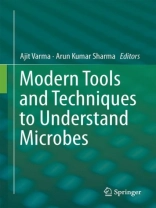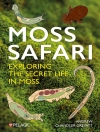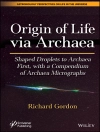This book provides essential molecular techniques and protocols for analyzing microbes that are useful for developing novel bio-chemicals, such as medicines, biofuels, and plant protection substances.
The topics and techniques covered include: microbial diversity and composition; microorganisms in the food industry; mass cultivation of sebacinales; host-microbe interaction; targeted gene disruption; function-based metagenomics to reveal the rhizosphere microbiome; mycotoxin biosynthetic pathways; legume-rhizobium symbioses; multidrug transporters of yeast; drug-resistant bacteria; the fungal endophyte piriformospora indica; medicinal plants; arbuscular mycorrhizal fungi; biosurfactants in microbial enhanced oil recovery; and biocontrol of the soybean cyst nematode with root endophytic fungi; as well as microbe-mediated drought tolerance in plants.
Table of Content
Introduction to Modern Tools and Techniques to Understand Microbes.- Novel Approaches to Identify and Characterise Microorganisms in Food Industry.- Strategies of Mass Cultivation of Sebacinales.- Biophysical Phenotyping as an Essential Tool for Understanding Host-Microbe Interaction.- Targeted Gene Disruption Tools for Fungal Genomics.- Polyphasic Approaches to Characterize Mushroom species.- Function-based Metagenomics to Reveal Rhizosphere Microbiome: A Glimpse.- Biological Indicators for Soil Health: Potential for Development and Use of On-Farm Tests.- Mycotoxin Biosynthetic Pathways: A Window on the Evolutionary Relationships Among Toxigenic Fungi.- How to Disentangle Changes in Microbial Function from Changes in Microbial Community.- Legume-Rhizobium Symbioses: Significance for Sustainable Plant Production.- Tools and Techniques to Study Multidrug Transporters of Yeast.- Approaches for Determining Antimicrobial Drug-Resistant Bacteria: The Way Ahead.- Continuous Elution Electrophoresis as a Unique Tool for Microbial Protein Analysis.- Detection and Characterization of Endobacteria in the Fungal Endophyte Piriformospora indica.- Metabolomic Mediated Characterization of Endophytic spp. in Recalcitrant Tree Species.- Analytical Techniques to Assess Medicinal Plants Value Addition after Microbial Associations.- Omics: Tools for Assessing Environmental Microbial Diversity and Composition.- Arbuscular Mycorrhizal Fungi: Evolution and Functions in Alleviating Plant Drought Stress.- Engineered Nanostructured Materials for Antimicrobial and Photocatalytic Applications.- Cryopreservation of Microorganisms.- Microbial Cultures: Maintenance, Preservation and Registration.- Biosurfactants in Microbial Enhanced Oil Recovery.- Fed-batch Cultivation for High Density Culture of Pseudomonas Spp. for Bioinoculant Preparation.- Protocol for Biocontrol of Soybean Cyst Nematode with Root Endophytic Fungi.- Spectrophotometric Assays to Evaluate the Rhizospheric Microbes Mediated Drought Tolerance in Plants.- Subject Index.
About the author
Prof. Dr. Ajit Varma, M.Sc. Ph.D. is Distinguished Scientist and Professor of Eminence at Amity University Uttar Pradesh, Noida (India). He is recipient of Alexander Von Humboldt Foundation Fellowship (Germany). Dr. Varma research interest is Plant-Microbe Interactions and Mycorrhizal fungi. He has discovered cultivable mycorrhiza and named it Piriformospora indica. As on today, he has authored and edited 78 books and published 314 research articles in International Journal of repute. Dr. Varma is the Editor -in -Chief of Soil Biology Series being published by Springer Verlag, Germany.
Dr Arun Kumar Sharma did his M.Sc. and Ph.D. from Jammu University, Jammu, J&K, in the discipline of Botany, specializing in Mycology and Plant Pathology. He joined the Agricultural Research Service (ARS) under the Indian Council of Agricultural Research during 1978 and has the research experience of over 37 years in ICAR in various capacities. Healso worked as Plant Pathologist under Food and Agriculture Organization (FAO) of the United Nations in South America for a couple of years. Dr. Sharma has worked as Director, ICAR-National Bureau of Agriculturally Important Microorganisms (Department of Agricultural Research and Education, DARE, Govt. of India). ICAR–NBAIM is the Repository of the agriculturally important microorganisms, designated by the National Biodiversity Authority of India. It holds more than 6500 microbial cultures in its culture collection. He has a vast experience of working on rusts, Karnal Bunt and other major diseases of wheat, pest problems of rice, IPM, pest survey–surveillance, Human Resource Development, agriculturally important microorganisms and other allied sectors. Dr. Sharma has a great interest in Agriculturally Important Micro-organisms, especially in the utilization of microorganisms in crop health management and other allied areas.












